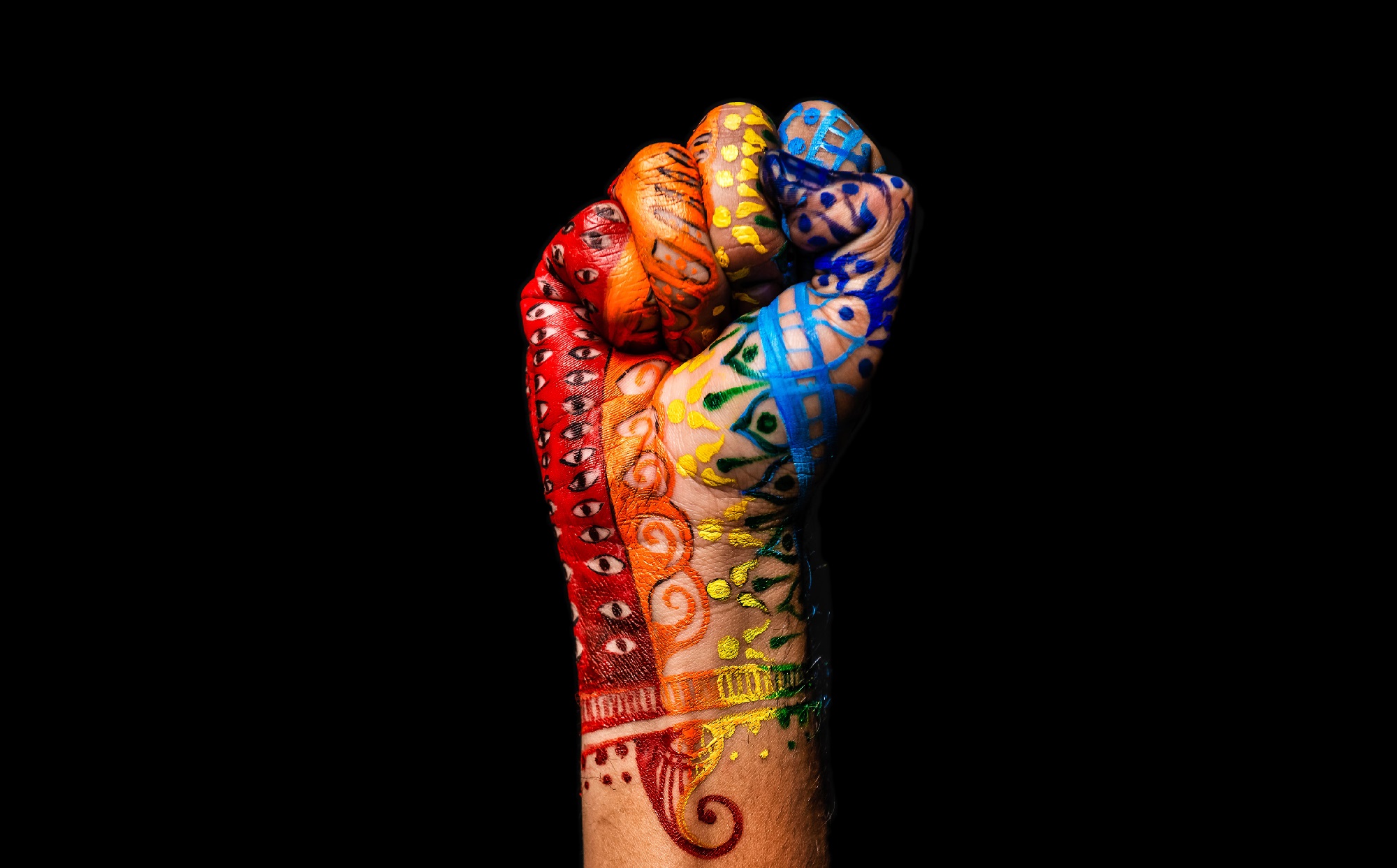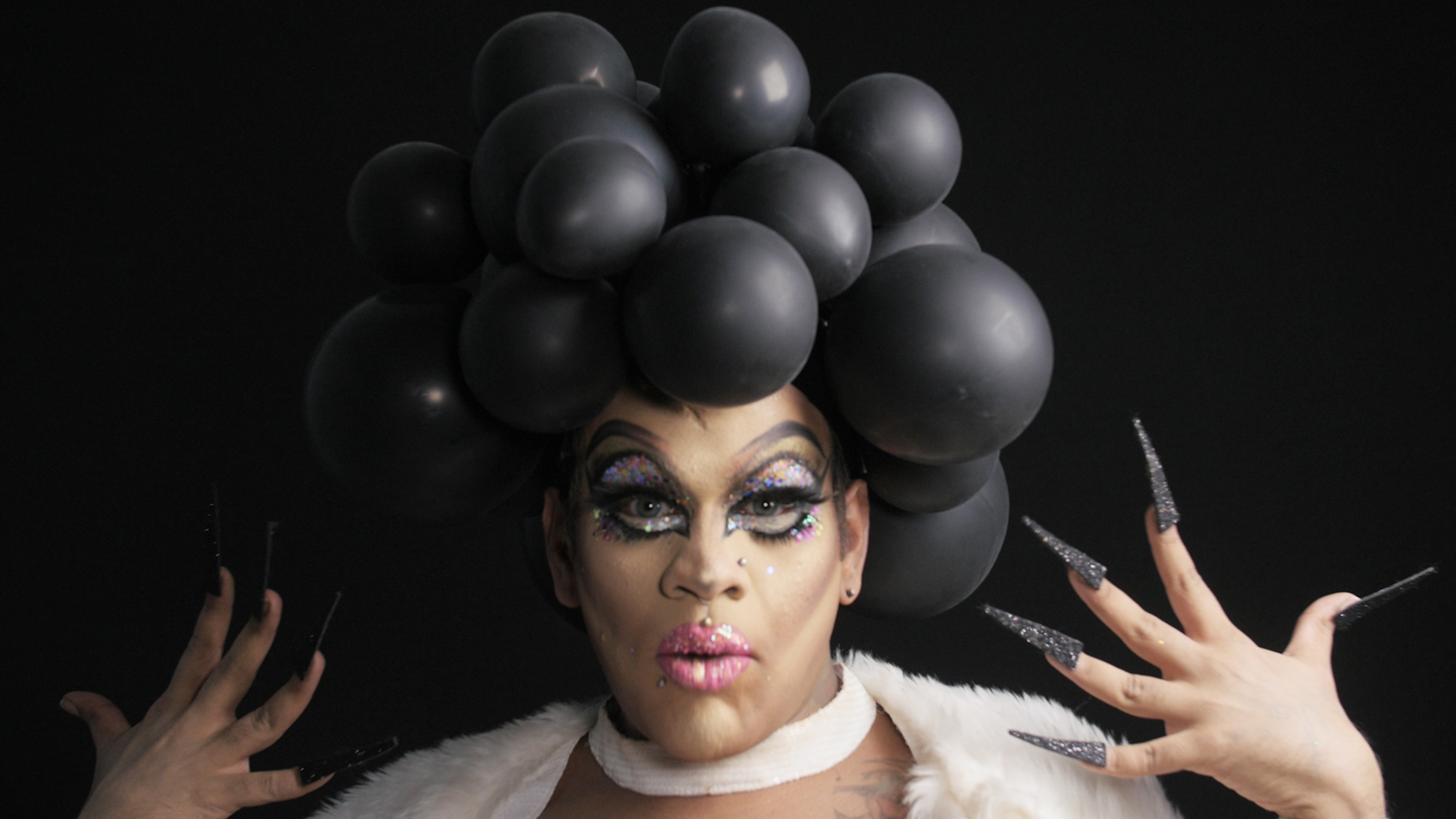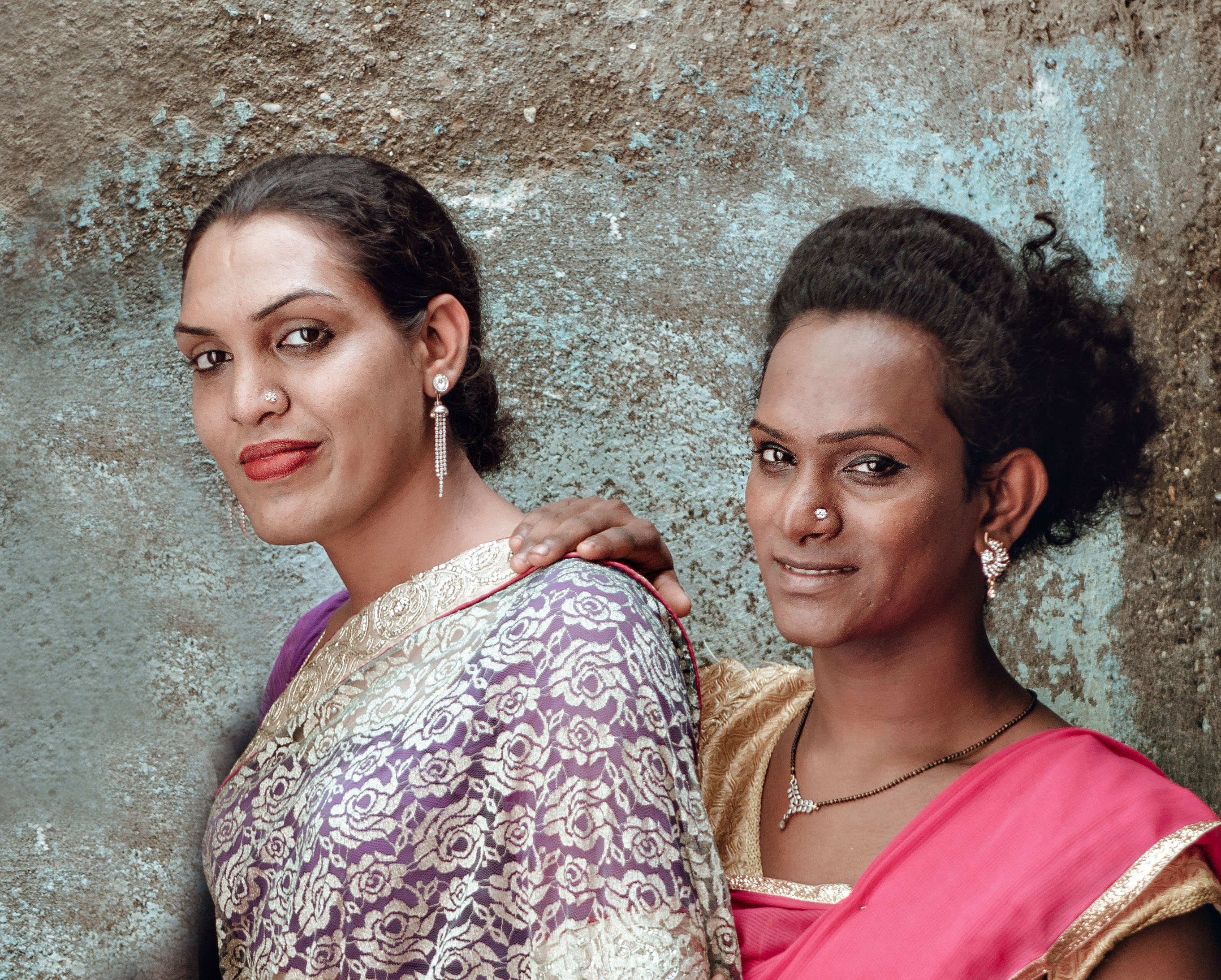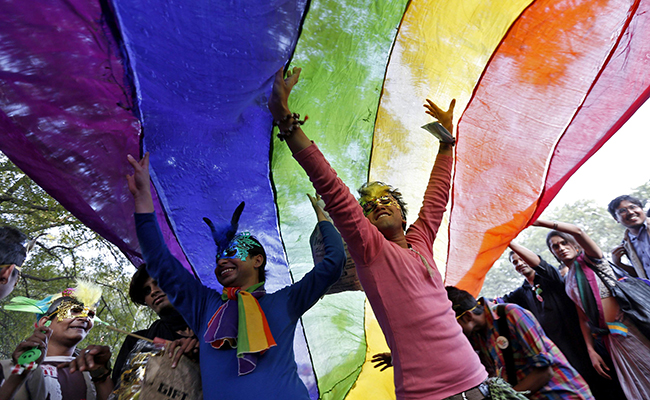Rainbow warriors: The LGBTQ Indian artists fighting for change through music
We meet some of the queer musicians making their voice heard on new album 'Rainbow Riots India'.
By Will Stroude
This article first appeared in Attitude issue 314, October 2019
Words: Thomas Stichbury
Art and activism collide in Rainbow Riots India, a new musical album bringing together some of India’s first openly LGBTQ artists.
Founded in 2012 by Swedish musician Petter Wallenberg, Rainbow Riots is a non-profit organisation which fuses art and activism in a bid to improve the lives of queer people in places around the world where their rights are under threat, or not recognised at all.
The group’s latest project, an album entitled Rainbow Riots India, aims to help Indian society to catch up with the law following the repeal of the country’s Section 377 law criminalising homosexuality last year.
Attitude caught up with four trailbazing talents involved in making the album, with each sharing their experiences of growing up in India, facing different degress of discrimination and prejudice.
One common thread, though, is that the story doesn’t stop with the overturning of Section 377. There are still a few chapters to go before we reach a happy ending…
Shooting to fame in the 2014 series of TV show Bigg Boss, the Indian equivalent of Big Brother, Sushant Divgikar was raised in a liberal household where his sexuality was embraced with open arms.
“I came out to my brother, who was so protective of me, and he told my dad. My father asked me: ‘Are you gay?’
“And without a bat of an eyelid, I said, ‘Yes’.
“He gave me a huge hug and said: ‘You’re not my gay or straight child. You are my child. Period.’ Those words still resonate in my ears and make me emotional.
As for my mother, she just said: ‘Oh, I already knew, I gave birth to you, what did you expect? That I didn’t know? I love you regardless’. But she did say that house rules still applied to me as much as they did to my brother — ‘No boys allowed in your bedroom’,” he laughs.
Sushant, who lives in hip Bandra (“the queen of the suburbs in Mumbai”), acknowledges that his upbringing won’t have been the norm for other LGBTQ kids, and that he was fortunate to have been surrounded by so much acceptance.
“I had a beautiful childhood,” he notes. “My parents and family were so supportive, and they made it a lot easier [for me]. All I can say is that I’m blessed.”
Pictured left in all his fabulous finery as drag alter ego Rani-Ko-He-Nur, Sushant doesn’t go into detail about any hardships he has had to face. His default setting is to brush them aside. “Yes, there have been instances of misogyny and homophobia in my life, but you tell me one country that doesn’t have it?” he asks rhetorically.

That said, Sushant, 29, does point to the far-from-rapturous reception he received on being crowned Mr Gay India, in 2014. “The response was lukewarm as most people were still afraid, or apprehensive about mentioning being gay openly. But I’ve always been proud to live as a gay man, and being honest and comfortable with who I am has, for the most part, worked for me.”
When talk turns to the scrapping of Section 377, he is keen to hammer home the law’s British roots, based as it was on the 1533 Buggery Act.
“India was very celebratory about sexuality and sexual diversity until the British imposed this absurd and inhumane law upon us and other Commonwealth countries,” he fumes. “We need to undo the conditioning that the British left us with.” But Sushant, who lends his vocals to tracks Love is Love and I’m Coming Out on Rainbow Riots India, is confident his homeland can right the wrongs of the past.
“Now is when we must all come together and fight for equality,” he urges. “You can see the wheels of change [already] turning for the better.”
Queer rapper Tropical Marca paints a much darker, disturbing picture of childhood, despite also having the support of his nearest and dearest.
“Being from an educated family and [having a group of] friends who actually got what being gay is, I consider myself to be privileged,” he begins. “However, that privilege walked out of the door as soon as I did.”
A colourful fixture on Mumbai’s club scene, the Tropical Queen singer, who also performs in drag, insists he never felt anything less than comfortable in his skin.
“I always knew I was different. I just didn’t know what the word for it was. Society knew exactly what to call me: gay. I didn’t ever feel ashamed of myself [though]. I was proud of the fact.”
But when asked if he was ever bullied because of his sexuality, Tropical (real name Marc Mascarenhas) recounts a youth that was pockmarked with extreme cases of abuse, including rape.
“Being molested at the age of three, bullied through[out] high school and college, being gang-raped at 14…” he says, with a disquieting, nonchalance. “Add to that, the nasty comments, so, basically, the usual.”
Casually shrugging off the trauma as you would your coat at the end of the day, perhaps as a coping mechanism, Tropical, now 29, sought escape in song.

“I found the stage and church choir at six, and I played like a kid at Chuck E Cheese,” he gushes. “My music is [there] to inspire kids like me. It doesn’t matter what your story is, only you [can] change it.”
So he jumped at the chance to appear on Rainbow Riots India.
“When Petter asked me to be a part of it, to use music as a medium of love, [I] was above and beyond. It is such a beautiful opportunity to let the world have a taste of our art, culture and passion towards making a better tomorrow.”
Although things are moving forward with the rolling back of India’s anti-gay laws, Tropical warns that the war has not yet been won.
“More people have the courage to come out, but that has increased the suicide rates due to lack of acceptance by families,” he says.
“[Gay] sex has also increased and so has the risk of HIV. As the brand ambassador for PrEP, I have made it my personal mission to wipe out HIV [in India] in the next five years.”
Growing up in the slums of Mumbai, dancer Paras Ramjilal realised from an early age that poverty wasn’t going to be the only hurdle that she would have to overcome.

Paras (left) and Avika from Dancing Queens in Mumbai, India (Photography: Johannes Helje)
“I was 12 when I felt that I was different from the other kids,” she reflects. “I had feminine behaviours and the feeling of [being] a girl.”
A “totally confused” Paras eventually came out as trans to her family and was immediately met with resistance.
“They were in total shock and not accepting of it, especially my brothers, who were ashamed of me. My mother eventually supported me.
“I hardly had any friends,” she adds. “And those who were so-called friends started to ignore me.”
Treading water against a tide of transphobia, Paras struggled to find a “proper job” despite having a post-graduate degree and plunged to desperate depths just to survive. “People didn’t regard me as human or as a part of society.”
“I faced discrimination at every turn,” she reveals. “The only options I was left with were begging and sex work, like many members of my community.”
Paras, 23, continues: “The place of sex work was usually the highway. Clients were [typically] drunk and would abuse me verbally and physically if I didn’t have sex as per their needs. Most of them preferred to have sex without a condom, and wouldn’t pay the agreed rate, or would demand sex without [paying] money.
Catching a break, Paras currently works in a bank, and found a new rhythm in life, quite literally, when she joined Dancing Queens, India’s first trans-woman-led dance group. After launching 14 years ago, the troupe now has more than 30 members.
“Since childhood, I [have] had a craving to dance, but there was no platform to show my talent,” she recalls.
Paras, who features in the music video for Never Look Back on the EP, hopes fans will “understand that trans people are a part of society, and that we have the same rights [as everybody else].”
In April 2014, India’s Supreme Court made the landmark ruling that transgender people should be recognised as a third gender. It was a huge sea-change, but Paras calls for more to be done for her trans brothers and sisters.
“[Hopefully], the government will come up with a bill to take care of all transgender issues, including education, health and equal job opportunities,” she says.
Vinodh Philip formed Rainbow Voices Mumbai, India’s premier LGBTQ choir, in the summer of 2014, and they’ve been hitting all the right notes ever since.
“The choir aims to be an advocate for equality, compassion and inclusion, to spread a message of love and acceptance through the transformative power of music, and to provide a safe space and platform for queer musicians and singers to express themselves without fear or prejudice,” he beams.
Made up of singers from “all different walks of life”, Vinodh, 41, says they have become his chosen family.
“All of us have stories of struggle, and we’re now one another’s support system, giving shelter and comfort, sharing joys and challenges, whether it’s to do with tough times at work or with relatives who don’t understand our sexuality.”
Pitching in on a number of tracks on Rainbow Riots India, including Be the Change, Vinodh believes the choir’s role is more vital than ever in striking a chord with the public following the dismantling of Section 377.
“The LGBTQ community is still looked down upon in Indian society. Just at the start of this month, a 19-year-old boy committed suicide after he was harassed and ridiculed for being gay,” he sighs.

“We have a long way to go in terms of civil rights, [namely] medical benefits, housing loans, adoption, civil unions and same-sex marriage laws.
“But as Rainbow Voices Mumbai, we’ll continue to be the musical rainbow warriors fighting for LGTBQ rights,” Vinodh maintains.
Back in August, Petter invited Sushant, Tropical Marca, Paras, Rainbow Voices Mumbai and his other collaborators to his homeland to perform at Stockholm Pride, making them the first queer Indian singers and dancers to headline an international Pride.
Hungry to make more history, Petter doesn’t know where the rainbow will take him next.
“As long as there is hatred to fight, my work is never done,” he vows.
Rainbow Riots India is out now on Spotify, Apple Music and all other digital platforms rainbowriots.com.
